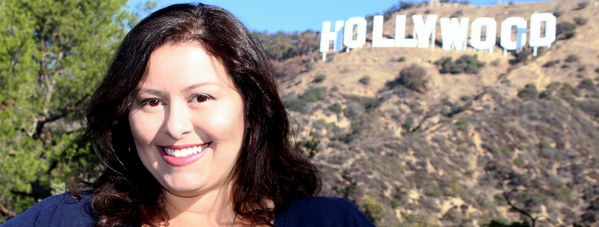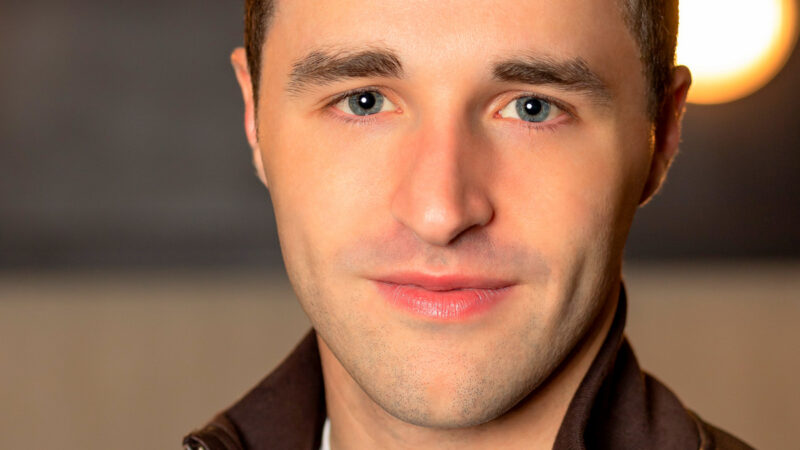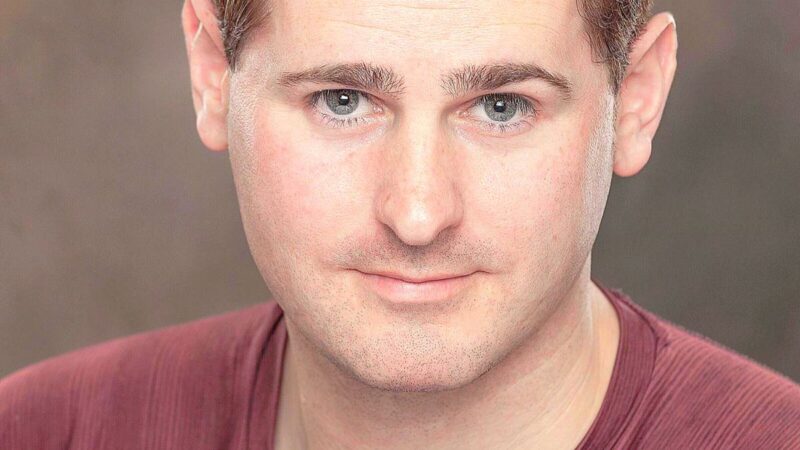DIRECTOR INTERVIEW: Interview with Gabby Egito
I am Gabby Egito, a Brazilian writer/director based in Los Angeles, California, since 2010. Three films I wrote and directed – “Synergy”, “Stuffed” and “Taken for Granted” – received eight awards and three nominations at U.S. international film festivals in Hollywood, Las Vegas, Houston (Texas), Cleveland (Ohio), Atlantic City (New Jersey), Atlanta (Georgia), and Orlando (Florida). I attended the filmmaking conservatory at the New York Film Academy (located at Universal Studios), under a merit-based scholarship. And I also have a Masters in Film Studies from the University of São Paulo, one of the world’s major film and television schools that is recognized by the Academy of Motion Pictures Arts and Sciences in USA. I hold Bachelors degrees in Journalism and Psychology as well.
How would you describe your work as a director
As a director, I translate the sentences from the script into moving images, with a certain pace, evoking feelings and, hopefully, making the audience relate to it. For such achievement, I count with the collaboration of actors and other talented people, in areas like photography, art direction, music and editing. I’m like a conductor setting the tempo and shaping the sound of the orchestra.
Gostei de um vídeo @YouTube http://t.co/0yPsLzMl9J for Granted – LABRFF 2013
— Brazilian Girl in LA (@brgirlinla) August 23, 2013
Describe wrong impressions actors, writers and directors have about directing
Some people believe that a director is an artist that deals only with the movie shots and instructions to actors. Directors are leaders and should inspire their cast and crew though. They must create a collaborative environment. That entails managing people and, most of the times, egos. They are the beacon of the project. And their work is not done when the film is in the can. They must understand the politics of the market and master the media from an entrepreneurial perspective as well.
How did you get into directing
Since I was 4 years old, I liked to create stories. At that time, I would draw each scene, like a storyboard, and then would tell my mom the story so she could write it down for me and gather a sort of book. At the end of my adolescence though, I became obsessed with the idea of being an actress. I took acting lessons, worked on some plays, commercials, and short films back in Brazil. But I usually felt uncomfortable with the stories they told. They didn’t seem clever enough to me, you know? Something was missing. I could never surrender myself completely to the roles I was playing, like great actors can do. So I started to study screenwriting in order to create my own content. I only got really into directing in 2010, when I came to Los Angeles for a filmmaking workshop, in which I had to write and direct. As a director, I noticed I could connect on a deeper level with actors, bringing out their best performances. So directing felt incredibly right. I finally found myself with the feeling of being in the right place at the right time.
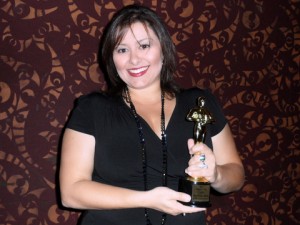 Do you often take courses to increase your craft
Do you often take courses to increase your craft
Yes. I’m always attending workshops, master classes and panel discussions. Anything that grabs my attention. I browse websites like Eventbrite once a month to check what’s going on in LA and I also get a lot of emails from festival organizations, unions and so on. I recently attended a very interesting master class promoted by the Writer’s Guild on the Psychology of Storytelling.
What books do you read
I’m always reading technical books. One of my favorites is “The Writers Journey: Mythic Structure for Writers”, by Christopher Vogler.
Who is your favorite director?
I’d say Alfred Hitchcock, although I like Woody Allen a lot as well. Hitchcock was able to produce movies with great artistic value, with relevant contributions to the craft of directing, and his movies were also commercially successful. He understood the media and the audiences. Allen’s character’s are amazing and I deeply admire his fruitful discipline in filmmaking. Few people can deliver so many great movies, from script to production, like him.
How do you choose a project to direct?
It must have a great story with which I deeply relate, usually character-driven. Preferably witty and dark. I have no genre restrictions, although I’m not a fan of war and western movies. I would only take horror projects if they were more psychological than gory. Romantic comedies must have a female lead with more life purposes than just marrying and having kids. Other than that, I’m completely open to any ideas.
When you’re offered a project, what things do you put in place to deliver a good job?
My goal is to tell the story in the best way possible having my hirer’s best interest in mind. Most of the times that means plot adjustments for dramaturgical or productional reasons. I’m not there to do just what the hirer wants, I’m there to do what the hirer needs to succeed, according to my expertise.
Why would you choose an actor, writer or producer? What do you look for?
Actors must fit the character’s description. I’m not gonna cast a Woody Allen type as a bodybuilder unless I want to make a point about it or it’s a comedy. This is an extreme example, but you get the idea. Actors like to believe they can fit in any role. That’s not true. So when one is not chosen for a part doesn’t mean they’re not talented, it just means someone fitted better on my idea of the character’s traits. Accurate casting is halfway to a movie’s success. Members of the crew are hired based on a track record and how much our visions match. I don’t hire people just because they’re my friends. But, of course, it’s better to have a competent friend by your side on set than just a good professional.
Is there something that helps you during a production?
I work very well under pressure. I have a clear idea of what I want and I know how to communicate it effectively. I’m able to listen and take quick decisions as well.
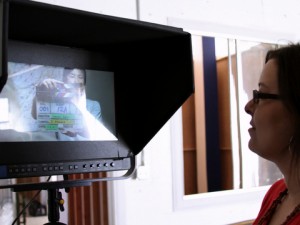 What do you expect from an actor during a production?
What do you expect from an actor during a production?
I expect them to be the character consistently in each shot and take of a scene. I expect them to be able to take my input and shift their acting instead of repeating the same mistakes over and over. I also expect them to be on time and be courteous to everyone on set.
What’s your latest work? Tell us a little bit about it.
My latest film was just nominated Best Foreign Project at the Central Florida Film Festival. “Taken for Granted” is a psychological drama in documentary-style format that traces the last day in the life of a housewife, unraveling her intriguing personality and the striking circumstances of her death. The film opens a window onto the minds of those whose need for love and nurturance drives them to the extremes.
Tell us about a creative choice you took on set of a recent production…
On “Taken for Granted”, for instance, besides the actual dramaturgical scenes, I decided to give each actor a bio of their character and then I interviewed them in character as a documentary. So they had the chance to work on a great deal of improv and the results were great. It looks so real, that I had people asking me how I managed to have real folks reenacting scenes for the documentary. LOL
How do you advice directors to find projects?
Look for projects that say what you want to say. Don’t sell yourself for a gig that has nothing to do with your voice just to make ends meet. If it turns out to be a success, you’re doomed to be forever summoned for that kind of project. Money won’t make your life less miserable then.
How can filmmakers finance their projects?
I wish I knew! LOL Each project is a particular challenge. If you could convince others that your project deserved to be made, you’d be already halfway. Truth be told, most projects have a lot of clichés and low relevance, you know? They’re not engaging, they don’t inspire, they don’t have some level of uniqueness. They are more of the same on a globalized market where the strongest competitors already deliver a not much greater content with the best wrapping available (cutting-edge technology, special effects, Hollywood stars, worldwide marketing campaigns). Hence, it becomes pretty hard to get someone to put real money on your project if you don’t have a standout piece. Filmmaking is a high-risk investment. I believe a great tip to start is to figure out what you can get for the production that doesn’t involve cash, like having a sponsorship of a restaurant to feed the crew, a free location, borrowed equipment, volunteers and so on.
What do you think a director can do to get into the film industry?
I’m betting on keeping it real and honing my skills to tell stories with my voice. I don’t wait for proposals, I develop my own projects.
What advice would you give directors around the world?
We are the gatekeepers of our culture. Don’t try to be the shoestring version of Hollywood if you’re not based in USA. You love action movies? Great! Try to translate them into your own culture. Don’t copycat American values just because. People are different and react differently in other parts of the world, remember that when creating roles. Diversity is key. There are other heroes beyond the White American spectrum and it’s up to us to take them to the silver screen. Be authentic. That’s your best chance to succeed.

